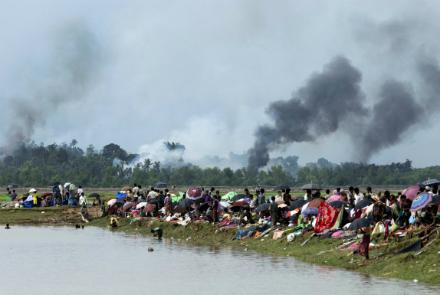The Myanmar authorities said there was no sign of attacks by Rohingya Muslim militants on Tuesday as a one-month insurgent ceasefire came to end.
The Arakan Rohingya Salvation Army (ARSA) announced the ceasefire from September 10 in order, they said, to facilitate aid deliveries to Rakhine State, where their attacks on security forces on August 25 triggered a ferocious government crackdown, Reuters reported.
The government offensive in the north of Rakhine State has sent some 520,000 Rohingya civilians fleeing to Bangladesh and has drawn international condemnation and UN accusations of ethnic cleansing, Reuters reported.
But government has denied claims of ethnic cleansing and rebuffed the insurgents’ ceasefire claim, saying it would not negotiate with terrorists.
In the meantime, Myanmar has said that more than 500 people have been killed in the violence since late August, most of them insurgents, according to Reuters.
Authorities had been on guard over recent days and tightened security in the state capital of Sittwe as the end of the ceasefire approached, a state government spokesman said.
“We had information that the ARSA could attack but there have been no reports,” the spokesman, Min Aung, said early on Tuesday.
The insurgents said on Saturday they were ready to respond to any peace move by the government, even though the ceasefire was ending at midnight on Monday, Reuters reported.
They also reiterated their demand for rights for the Rohingya, who have never been regarded as an indigenous minority in Myanmar and so have been denied citizenship under a law that links nationality to ethnicity.
Instead, Rohingya are seen as illegal immigrants with freedoms restricted and rights denied, and are derided by ethnic Rakhine Buddhists, and much of the wider popular in Myanmar, which has seen a surge in Buddhist nationalism in recent years.
Reuters however reported that thousands more Rohingya villagers have arrived in Bangladesh this week in a new surge of refugees, now also driven by fears of starvation and telling of bloody attacks by Buddhist mobs on people trekking towards the border.


